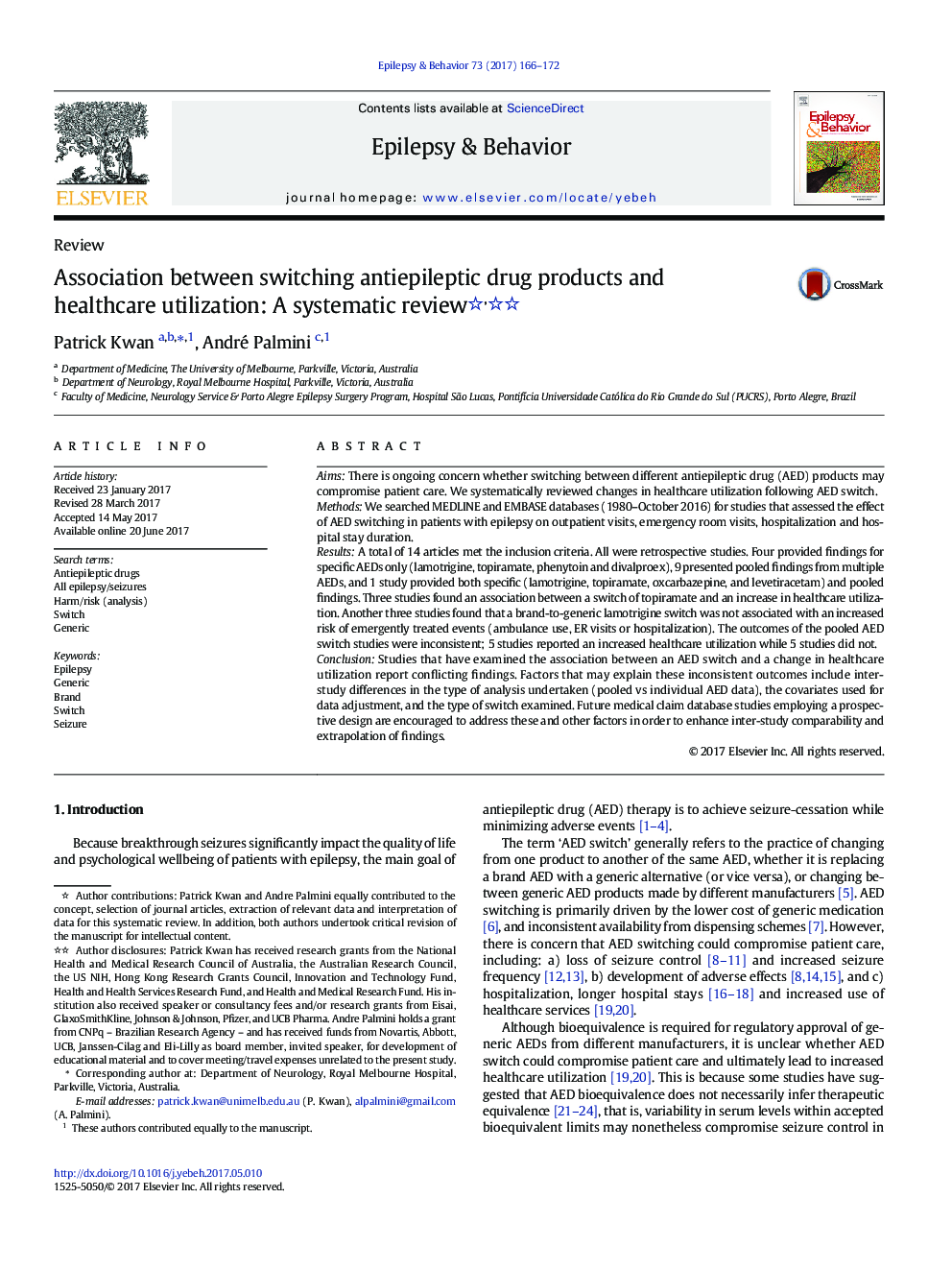| Article ID | Journal | Published Year | Pages | File Type |
|---|---|---|---|---|
| 5628331 | Epilepsy & Behavior | 2017 | 7 Pages |
â¢Studies assessing the association between AED switch and a change in healthcare utilization report conflicting findingsâ¢Inter-study differences such as type of analysis and switch, covariates for data adjustment may lead to conflicting resultsâ¢Another important contributing factor could be variations in the quality of generic formulationsâ¢Recent results of bioequivalence between generic products of lamotrigine in randomized, double-blind studies is encouragingâ¢Similar well designed, prospective studies for the other AEDs are warranted
AimsThere is ongoing concern whether switching between different antiepileptic drug (AED) products may compromise patient care. We systematically reviewed changes in healthcare utilization following AED switch.MethodsWe searched MEDLINE and EMBASE databases (1980-October 2016) for studies that assessed the effect of AED switching in patients with epilepsy on outpatient visits, emergency room visits, hospitalization and hospital stay duration.ResultsA total of 14 articles met the inclusion criteria. All were retrospective studies. Four provided findings for specific AEDs only (lamotrigine, topiramate, phenytoin and divalproex), 9 presented pooled findings from multiple AEDs, and 1 study provided both specific (lamotrigine, topiramate, oxcarbazepine, and levetiracetam) and pooled findings. Three studies found an association between a switch of topiramate and an increase in healthcare utilization. Another three studies found that a brand-to-generic lamotrigine switch was not associated with an increased risk of emergently treated events (ambulance use, ER visits or hospitalization). The outcomes of the pooled AED switch studies were inconsistent; 5 studies reported an increased healthcare utilization while 5 studies did not.ConclusionStudies that have examined the association between an AED switch and a change in healthcare utilization report conflicting findings. Factors that may explain these inconsistent outcomes include inter-study differences in the type of analysis undertaken (pooled vs individual AED data), the covariates used for data adjustment, and the type of switch examined. Future medical claim database studies employing a prospective design are encouraged to address these and other factors in order to enhance inter-study comparability and extrapolation of findings.
